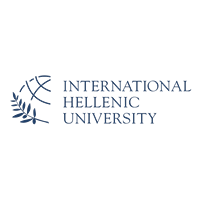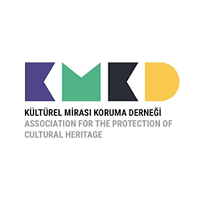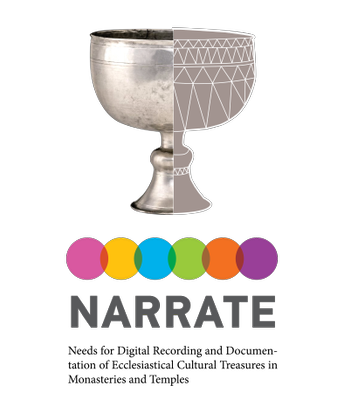Aristotle University of Thessaloniki

Aristotle University of Thessaloniki (AUTh) is the largest university in Greece and one of the largest in South-Eastern Europe. AUTh conducts research projects, participates in European research programmes and projects, cooperates with international institutions and organizations, and attracts outstanding researchers from within Greece and abroad.
Two Laboratories of AUTh are participating In NARRATE project:
Two Laboratories of AUTh are participating In NARRATE project:
- Laboratory of Geoinformatics Laboratory of Geoinformatics (LabGeo) is located in the Faculty of Engineering, School of Spatial Planning and Development of AUTh university of Thessaloniki in Greece. The LabGeo is one of the newest established in the university (2020) and it is active in the areas of Geoinformatics and Geospatial Engineering, participating in numerus R&D programmes, in EU & national funded projects. LabGeo efforts span state-of-the art knowledge and technology from spatial/image information acquisition, processing, analysis to representation and visualization. The area of projects’ that LabGeo is acting concerns Geoinformatics, Geospatial Engineering and ICT in the broader extent, i.e., software development, mobile & web applications, GIS, geodatabases & data mining, photogrammetry & computer vision, remote sensing, imaging, 3D modelling, geospatial technologies, mapping and cartography, navigation and surveying, laser scanning.
- Laboratory for Liturgical Studies The Laboratory for Liturgical Studies was officially instituted in 2017, marking the School of Social Theology and Christian Culture of Aristotle University of Thessaloniki’s objective to spearhead the study of the worship practice and tradition of the Orthodox Church in all its manifestations. The Laboratory’s mission is to promote and advance Liturgical scholarship and the study of its related theological disciplines as fostered by the School of Social Theology and Christian Culture, particularly in its Department of Worship, Archaeology, and Art.
International Hellenic University

The International Hellenic University, or DIETHNES PANEPISTIMIO ELLADOS (DPE), was established by Law (No 3391/2005) and based in Thessaloniki, Greece. The IHU was Greece’s first public university where programmes were taught exclusively in English, comprised of three (3) Schools that offered twenty-four (24) master programmes. The International Hellenic University was re-established by Law (No 4610/2019), is based in Thessaloniki, comprises nine (9) Schools and thirty-four (34) Departments, and is located in Thessaloniki, Kavala, Serres, Drama, Katerini, Edessa, Kilkis, Didymoteicho. The two Schools (the School of Humanities, the Social Sciences and Economics, and the School of Science and Technology) of the IHU belong to the University Center of International Programmes of Studies (UCIPS) of the International Hellenic University offering programmes that are taught exclusively in English. DPE (as well as the former Institutions) is systematically evaluated by external evaluators in the context of the Quality Assurance Authority in Higher Education. The UCIPS, developed to facilitate modern learning methods, is situated on a 16,000m² campus outside Thessaloniki, the second-largest city in Greece with an uninterrupted history of 2,300 years. Our state-of-the-art facilities, such as virtual classrooms, electronic library, IT labs, Digital Manufacturing and Materials Characterization Laboratory, and Molecular Ecology/Molecular Biology Lab create an environment conducive to higher learning and research for our students. Members of the Dept. of Surveying and Geoinformatics Engineering of IHU have coordinated and/or participated as members of respective research teams in more than twelve competitive Hellenic and European research projects including ERASMUS + KA2. As members of the Geoinformaticsgraphical Systems and Information Sector of the Technological Research Center (TRC) of Serres, DPE team has implemented in the four years of TRC operation nine applied research projects in the broader region of Serres.
The Laboratory of Geomatics Engineering (GENIE Lab) (https://genie-lab.topogeo.ihu.gr/en/home/) serves teaching and research needs and contributes to the social mission of the Department of Surveying and Geoinformatics Engineering of International Hellenic University, optimizing the connection of Education with the labor market and society as a whole, in the subject of Geomatics Engineering. The cooperative nature of the proposed project raises the need to consistently combine data from different sources, to share them among various end-users belonging to different authorities and to exploit them through different applications extensively. Furthermore, in the long term, the generated data and project results will have to be discoverable and easy to identify, the degree of their suitability will have to be evaluated and the terms of their usage to be explicitly defined. Thus, data involved throughout project activities will certainly conform to metadata EU directives to ensure their compatibility and usability in a Community and transboundary context. GENIE Lab is implementing projects under the above-mentioned specifications. To achieve geospatial data services interoperability and harmonization, projects undertaken by GENIE Lab are aligned with the EU regulation No 1312/2014 1, implementing INSPIRE directive as regards interoperability of spatial data services. All data are served under invocable data services. To conform to data services harmonization requirements, the appropriate open geospatial web services introduced by the Open Geospatial Consortium are adopted. Towards this direction, any type of Web development is exclusively based on open-source software components provided by W3C and OSGeo foundation regarding the final end-user web interface, the initial data preparation, and the creation of the appropriate web services.
The Laboratory of Geomatics Engineering (GENIE Lab) (https://genie-lab.topogeo.ihu.gr/en/home/) serves teaching and research needs and contributes to the social mission of the Department of Surveying and Geoinformatics Engineering of International Hellenic University, optimizing the connection of Education with the labor market and society as a whole, in the subject of Geomatics Engineering. The cooperative nature of the proposed project raises the need to consistently combine data from different sources, to share them among various end-users belonging to different authorities and to exploit them through different applications extensively. Furthermore, in the long term, the generated data and project results will have to be discoverable and easy to identify, the degree of their suitability will have to be evaluated and the terms of their usage to be explicitly defined. Thus, data involved throughout project activities will certainly conform to metadata EU directives to ensure their compatibility and usability in a Community and transboundary context. GENIE Lab is implementing projects under the above-mentioned specifications. To achieve geospatial data services interoperability and harmonization, projects undertaken by GENIE Lab are aligned with the EU regulation No 1312/2014 1, implementing INSPIRE directive as regards interoperability of spatial data services. All data are served under invocable data services. To conform to data services harmonization requirements, the appropriate open geospatial web services introduced by the Open Geospatial Consortium are adopted. Towards this direction, any type of Web development is exclusively based on open-source software components provided by W3C and OSGeo foundation regarding the final end-user web interface, the initial data preparation, and the creation of the appropriate web services.
Sofia University St. Kliment Ohridski

Sofia University ‘St. Kliment Ohridski’ is the first, largest and most prestigious institution of higher education in Bulgaria. It was established in 1888. The Faculty of Theology implements the project, mobilizing cross-disciplinary participation, gathering a team of researchers and teachers in the field of Theology, Archeology, History of Art.
Cognitive UX GmbH

Cognitive UX, works in the multi-disciplinary research fields of cybersecurity, human-computer interaction and artificial intelligence aiming to revolutionize the development and integration of human-centered cybersecurity systems. The goal is to create a working environment rich in opportunities for product impact. To do so, our activities are highly driven by basic research and fundamental applied research.
Kültürel Mirasi Koruma Dernegi

The Association for the Protection of Cultural Heritage (KMKD) was founded in 2014 and its activities are pursued with the understanding that the cultural assets created by different communities of Anatolia are the richness of Turkey and cultural heritage of all humanity. KMKD believes that it is our common responsibility to safeguard for the future generations the monuments and artefacts left by those communities who are no longer living there. KMKD expands expanding the knowledge, skills and expertise required for understanding the values of the cultural heritage and taking the necessary measures for their protection.
What KMKD does:
What KMKD does:
- Community engagement, learning and training, including development of educational materials around conservation projects, heritage interpretation, and sustainability of historic sites.
- Prepare documentation and risk assessment reports for monuments under risk and carry out activities for their protection.
- Create public awareness at local and national levels and calls on public authorities to take better and comprehensive action in this field.
- Assessment Project for the Built Cultural Heritage of Anatolian Communities of Turkey - in cooperation with Anadolu Kültür (funder: Department of State-US Embassy Ankara)
- 70TK: Documenting Built and Intangible Cultural Heritage of Tatavla (funder: Robert Bosch Stiftung), Faces of Remembrance (funder EU Erasmus+ Programme)
- Heritage Skills Build Peace and Capacity (funder: British Council Cultural Protection Fund Grant)
- Documentation and Dissemination of the Syriac Heritage in the Mardin/Tur Abdin Region (funder: U.S. Ambassadors Fund for Cultural Preservation)
- Preserving Syriac Manuscripts and Printed Heritage (funder: Prince Claus Fund)
- The Southern Islands of Marmara: Documentation, Risk Assessment of Architectural Heritage (funder: German Federal Foreign Office)
- Life in Historic Homes (funder: Goethe Institut)
- Mush: Architectural Heritage at Risk (funder: European Union within the framework of the programme “Support to the Armenia-Turkey Normalization Process: Stage 3”
